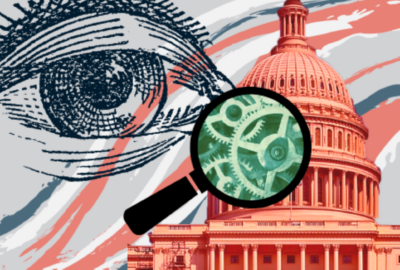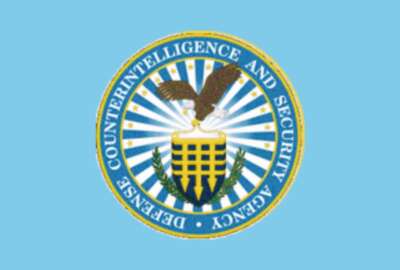Hubbard Radio Washington DC, LLC. All rights reserved. This website is not intended for users located within the European Economic Area.
On Air: Federal News Network
Trending:
Sharpe designs expanded role for the Federal Acquisition Service
Tom Sharpe wants to make the General Services Administration the first choice for most commodity buys for the government. He said he wants to increase the amoun...
wfedstaff | April 17, 2015 5:16 pm
Five months in as the Federal Acquisition Service Commissioner, Tom Sharpe has a pretty good idea of how he’d like to transform FAS.
Sharpe is advocating for the General Services Administration’s FAS to be the main source of contracting for every agency for everything from technology to automobiles to janitorial services.
Sharpe said he believes the business case for FAS to take over a lot of contracting for the government is strong because GSA can offer better value and better quality and can contract less expensively.
“First and foremost, it’s a faster process. We’ve gone ahead and done some research that using the Federal Supply Schedules, when you are going to do a sourcing and pricing event in any event, it’s up to 50 percent faster,” Sharpe said Tuesday at an event sponsored by AFFIRM in Washington. “How do I know that? We’ve collected the CFO Act agencies’ own internally advertised procurement lead times. So, the actual lead times they’ve published internally to their customers’ document that it’s up to 50 percent faster if you are doing a sourcing and pricing event. In any case, it’s a faster process.”
Sharpe said on top of GSA’s own speed, agencies should consider acquisition assistance during these times of employee furloughs and budget reductions.
Because FAS is a fee-for-service agency, employees are not facing furloughs.
Stretch goal for FAS
Sharpe’s goal is for FAS to earn 17 percent of all addressable spend governmentwide by the end of 2013. Currently, FAS is getting about 12.3 percent and is on track to reach 15 percent by Sept. 30.
Sharpe said he would like to see FAS’ share of all addressable spend increase to about 66 percent in the coming years.
The addressable spend for FAS means only the spending on the products or services GSA offers through its schedules or multiple award contracts, but not procurements that are agency specific, such as missiles or tanks.
One way Sharpe said GSA could increase its market share is by agencies reducing the number of procurement shops across government. He said it costs agencies time and money that, for the most part, they don’t need to spend, as FAS already is set up to handle these functions.
He said the Office of Management and Budget needs to help reduce the duplication of contracting across the government.
“A suggestion would be, we take on an initiative, a metric, to reduce the number of contract actions and drive those actions to the types of vehicles we already can document, save time, save money and have the right level of small business participation,” he said. “An example being Office Supplies 2.”
Mixed reaction from industry
Agencies are increasing their use of the OS2 blanket purchase agreement under the Federal Strategic Sourcing Initiative. Sharpe said departments are spending about 32 percent of all dollars on office supplies through the FSSI contract.
Sharpe’s push for GSA FAS to be a central supplier for commodity goods and services received mixed reaction from industry.
Steve Charles, the executive vice president of the Immix Group, which acts as a value added reseller for many companies with GSA schedules, said his goal of getting a larger piece of the procurement pie is lofty.
“Getting agencies to have someone else do their procurements is an unnatural act because that’s not how they get their money, and procurement is only the last step in the process,” he said. “What I would like to hear is more conversations between the appropriation community on the hill and the procurement community. All of this resides within OMB, but until we start meshing the constraints of fiscal law with the realities of procurement law, and how program managers get authority to spend and how that spend gets executed, until we really talk about that, I’m not sure we are going to have rapid increases in market share from a central buyer.”
Charles added that Sharpe’s claim about GSA being up to 50 percent faster looks at only schedules versus open market buys. His experience, however, shows GSA also is faster in some regards than other multiple award contracts.
Larry Allen, president of Allen Federal Partners, said Sharpe’s priorities seem to be expanding to focus on contract duplication, along with strategic sourcing.
One way Sharpe will increase market share is by selling the benefits of contracting with GSA. He is meeting with the deputy secretaries of the 23 largest agencies to explain why they should use GSA for contracting.
“I think we are raising awareness of the opportunity we have to save them time and money, everything from office supplies through the fleet,” Sharpe said. “I think where we are struggling is the execution. We define what’s available, we show the gaps, the white space, and we dollarize what the savings might be if they close that space, for example, in fleet. They’ve got their own fleet. They could save money by bringing it to the GSA fleet.”
Sharpe said GSA then follows up about the execution, which is where the need to reduce contract duplication comes in.
“The behavior needs to change,” he said. “It’s a behavior issue.”
Shared services report card
One of the ideas Sharpe has to pressure agencies on is a new shared series report card. He didn’t offer too many details, but it’s something he is working on with the Office of Federal Procurement Policy.
A part of the shared service strategy is strategic sourcing. Sharpe said he wants to increase the share of business contracts under FSSI.
The other way Sharpe is trying to achieve his goals is to take a second look at how the schedules are run.
Sharpe said FAS needs to take a closer look at how they and vendors negotiate pricing. He said it’s always been based on a quantity of none, and then the price comes down based on volume buys.
Charles said the discussion around strategic sourcing also concerns him, not because of how it’s being discussed, but because of what’s not being discussed by GSA and industry.
“Whether it’s wireless or pure hardware or enterprisewide software licensing, we ultimately have to deal with the manufacturer,” he said. “Small business can play a role as contract holder, but it’s not small business creating most of these things being bought. So, one of the things that has to be addressed is the non- manufacturing rule on the products side and the ostensible subcontracting rule when we are talking about services. I didn’t hear any conversation about how to address that explicitly.”
The non-manufacturer rule requires vendors under a supply contract to perform at least 50 percent of the costs of manufacturing of the supplies, not including the cost of the materials. Agencies can ask for waivers from the Small Business Administration under certain circumstances.
Allen added Sharpe also has to deal with a moral issue. He said the recent IG reports have set a bad tone in FAS that the IG is in charge and that you’d better not step out of line.
RELATED STORIES:
GSA to review all internal contracting practices after latest IG report
Sharpe sets 10 priorities to assure success at FAS
Bill turns up heat on agency use of strategic sourcing
Copyright © 2024 Federal News Network. All rights reserved. This website is not intended for users located within the European Economic Area.
Jason Miller
Jason Miller is executive editor of Federal News Network and directs news coverage on the people, policy and programs of the federal government.
Follow @jmillerWFED
Exclusive
Defense News
Read more





